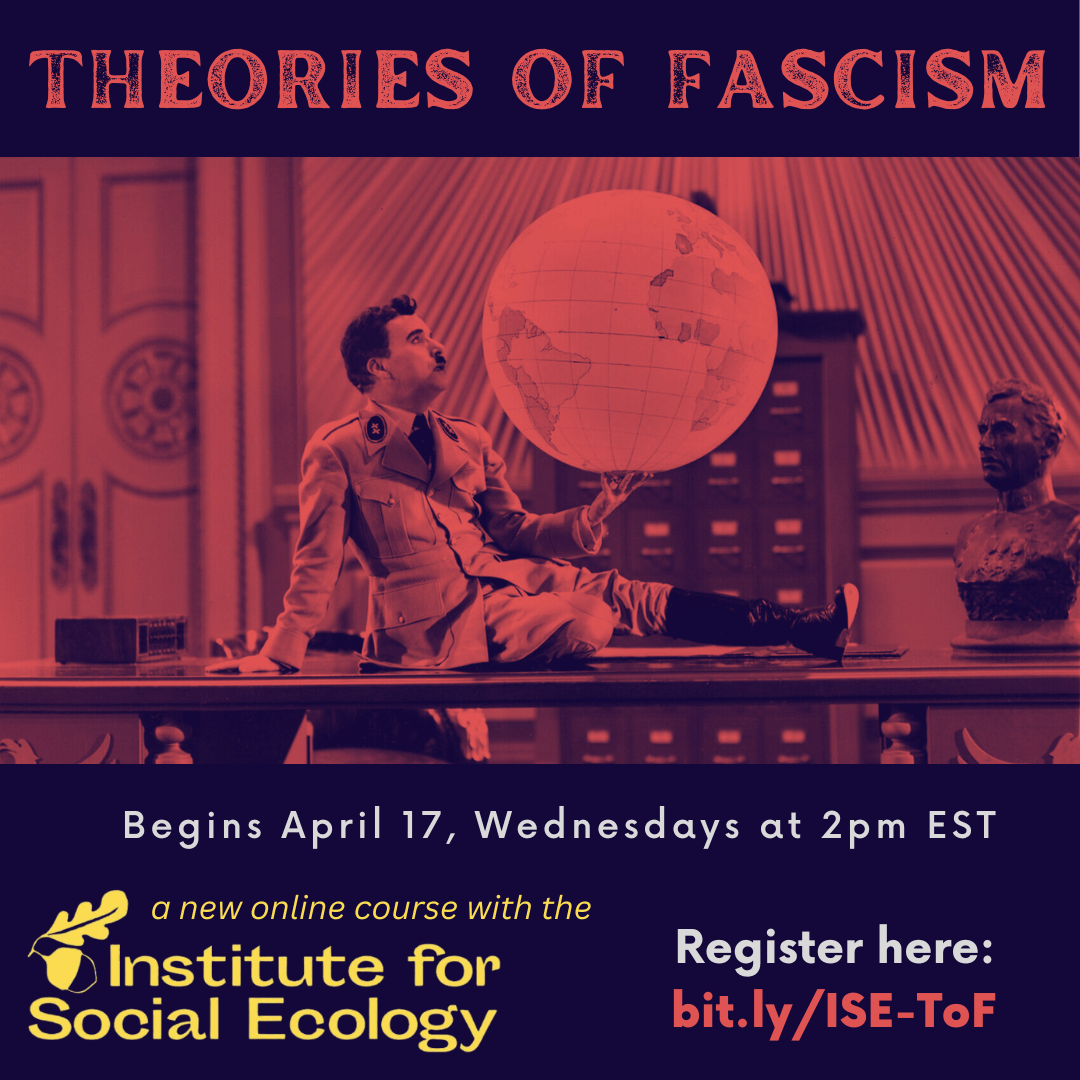Start April 17, Wednesdays at 2pm Eastern, eight weeks
Was the previous US administration fascist? Was it comparable to 20th century European fascism? Upon finding refuge in America, several German-Jewish philosophers sought to understand the terms fascism, authoritarianism, and totalitarianism. They focused on morality, participation, and subjectivity rather than the figure of the dictator. They asked if this could happen in America. We will begin with a survey of contemporary debates and then read selections from Adorno/Horkheimer, Dialectic of Enlightenment (1947); Adorno, The Authoritarian Personality (1950); and Arendt, The Origins of Totalitarianism (1951). We will conclude with Benjamin’s Thesis on the Philosophy of History (1940).
Cultural references to fascism, totalitarianism and authoritarianism have emphasized the strong man. We are familiar with Mussolini, Franco, Hitler, and onwards to Trump. But where would these authoritarian figures be without their appeal to the masses? What is the concept of the masses? We are familiar with participatory democracy. But what of participatory domination?
Contemporary European philosophy has attempted to throw light on the role of the subject in the object. So too Social Ecology, with its critique of materialism and celebration of subjectivity. How can we reconcile the devolution of subjectivity into fascism? What can be done to address the participatory side of fascism, the new forms of subjectivity in the advancement of a new species of authoritarianism and authoritarian movements of the 21st century?
Perhaps the most extraordinary aspect of our time is that both left and right agree that we have entered into a moment in which the threat of fascism is real. Let us take this observation seriously: How did we arrive here? Let us turn back the page and see if there is something that we missed from the observations of the last generation of theorist who attempted to understand fascism during and directly following the closing of the gates of Auschwitz.


